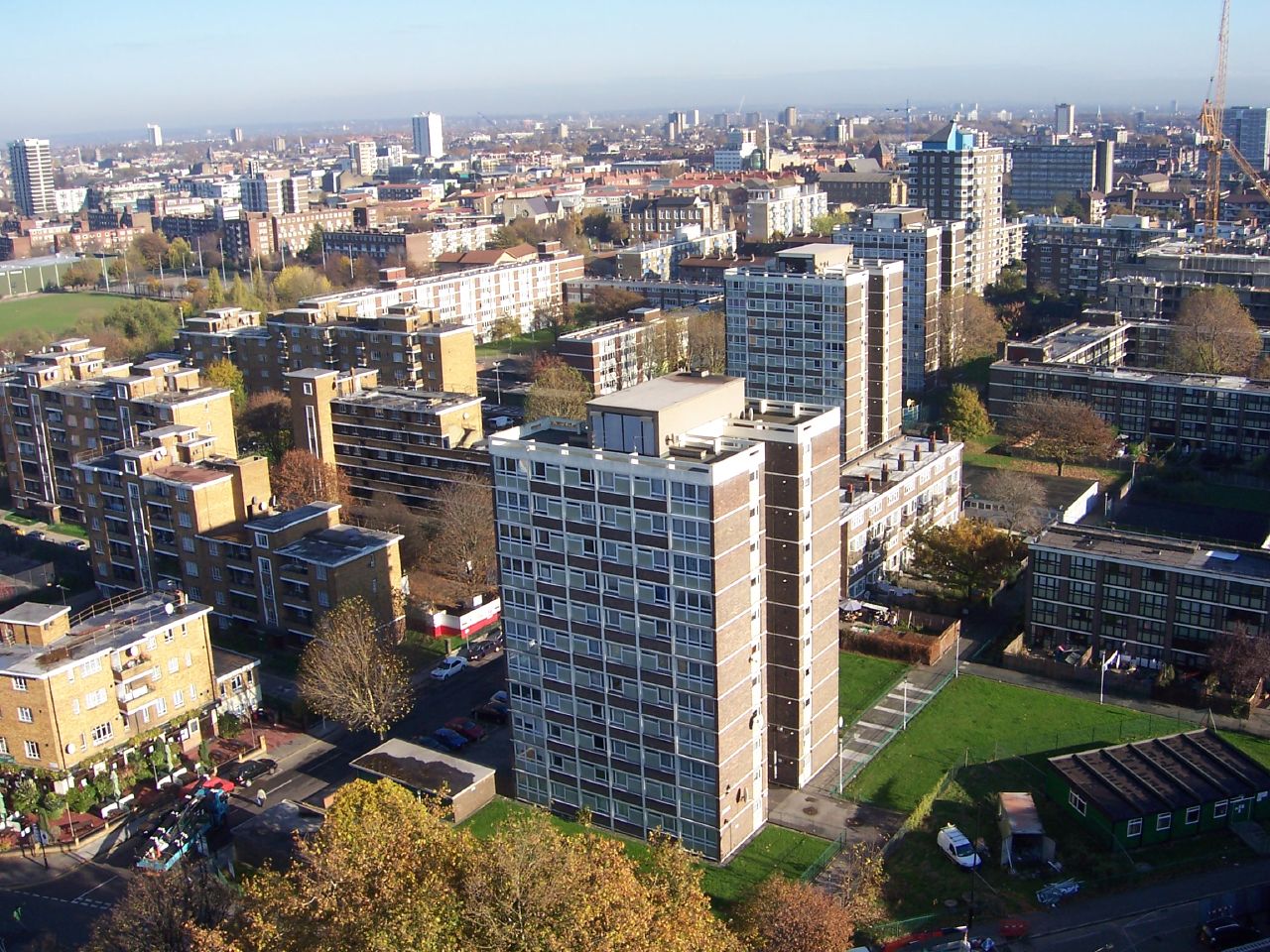London’s Housing Crisis: 4 Problems and 6 Solutions
by Christian Garland
23 April 2015

As electioneering reaches fever pitch, the severity of the housing crisis is brought up sporadically at best, and usually only answered by how it isn’t that bad and house building is the primary way of solving it. Here are four problems we face, and six ideas for how we solve them:
Problem 1. There’s nothing affordable about ‘affordable’ rents.
Almost every new housing development built in London will include a token number of ‘affordable’ housing units – but this means 80% of what are by any standard, completely unaffordable market rates.
This ridiculous definition isn’t intended to be scrutinised, and unsurprisingly it’s the same one pushed by Boris Johnson to sell London as a destination for investors wanting a ‘safe bet’ to increase the value of their ‘real estate’ investment.
2. There is no more social housing.
Local Authorities, which have never replaced social housing supply following its sell-off in the 1980s, now parrot the ‘affordable homes’ narrative. In Camden, the housing waiting list remains 22,000 strong. The figure is similar in all inner-London boroughs. Outer-London is hardly faring much better: the total number on waiting lists in London now stands at 344,000. Meanwhile Local Authorities sell sites which were formerly for social housing to developers.
3. Local Authorities are part of the problem.
Local Authorities have played a hand-in-glove role in the sell-off of land to developers to supposedly ‘reinvest’ in housing. This approach offers nothing to the hundreds of thousands on housing waiting lists, and again amounts to box-ticking: a very small amount may be put back into housing, but it’s nothing like the vision we’re sold.
In this context, the market sees that ‘regeneration’ means gentrification and social cleansing. In essence this can be traced to the neoliberal homily ‘the market knows best’, in other words the privatisation and subcontracting of everything, and even more crudely, simply selling off all that was formerly public.
4. Right-to-Buy: the original Tory housing disaster.
The original Thatcherite policy of the wholesale sell-off of social housing has been resurrected by the desperate Conservative-led coalition. It comes complete with a redux of the ideological narrative around ‘hard-working families’ to go with a raising of the limit for inheritance tax – despite it being inapplicable to 95% of the electorate, and all of those who bought their council house.
The fact that Housing Associations and other social landlords have already threatened legal action, should they ever be faced with being expected to sell their housing stock, further puts this retroactive – and reactionary – idea firmly back in the ground, although the Conservatives desperately keep trying to exhume it.
Solution 1. A land tax.
Talk about increasing council tax is meaningless for real estate investors, so for any effect to be had what’s needed is a land tax. Speaking to VICE, former Westminster empty properties officer Paul Palmer clarified how it could work: “What needs to happen is this: Once a property has been vacant for two years, then a one-off annual tax of 5 percent of its value is made. This happens each year, rising by 5 percent each time until they are paying almost 100 percent of the property’s value in tax.”
2. Rent control.
This should should cover the private sector, and something like 50% of market rates should be implemented for social housing, adjusted to 40% in Central and inner London.
3. Five year tenancies.
Applied across the board for all private renting, with the restoration of life tenure for council tenancies. This should guarantee security for the tenant for that time-frame, and be renewable assuming no problems with the landlord. This would copy a model currently used in Germany. Instead of an ‘inquiry’ into five year tenancies only for them to be dropped altogether, they need to be introduced urgently.
4. Decriminalisation of squatting in residential premises.
Formerly a civil offence, in 2011 squatting in residential properties was criminalised. Under section 144 of the Legal Aid, Sentencing and Punishment of Offenders Act, it’s now punishable by a maximum prison term of up to six months, a maximum £5k fine, or both. In 2012 the Law Society commented: “Residential occupiers are already adequately protected from trespass under the Criminal Law Act 1977, and for that reason we, along with the Metropolitan Police, the Magistrates’ Association and many others, did not see the need for the introduction of a new criminal offence for squatting.”
5. More houses country-wide.
A national social house-building programme is an obvious requirement in tackling the housing crisis. The ‘affordability’ bullshit needs to be dropped too: a dozen such token ‘affordable homes’ in amongst 2,000 new private flats might tick the policy-hack box of fulfilling the minimal criteria for ‘mixed communities’, but they’re destined to be mostly uninhabited.
6. A movement.
A housing movement is growing, and resistance to the social cleansing of London is spreading fast. A prolific victory came in December 2014 when residents of the New Era estate in East London resisted the machinations of the £11bn asset management firm Westbrook Partners, which had planned to evict them and more than double the rents.
Meanwhile the E15 Mothers campaign on the Carpenters estate is unbowed and continues to advance, assured shorthold tenants of the Guinness Trust on the Loughborough estate in Brixton are fighting to stop evictions, the Sweets Way campaign in Barnet is taking on Annington Homes and Barnet Council, the William Sutton estate campaign in Chelsea has received support from Eddie Izzard, and the occupation of the Aylesbury estate continues all the more emboldened for sustained police intimidation.
The many other occupations and campaigns are too numerous to list, but now number more than 17. The number doubles if you include broader anti-gentrification campaigns. A movement taking shape for a flashpoint in the battle for the future: housing.